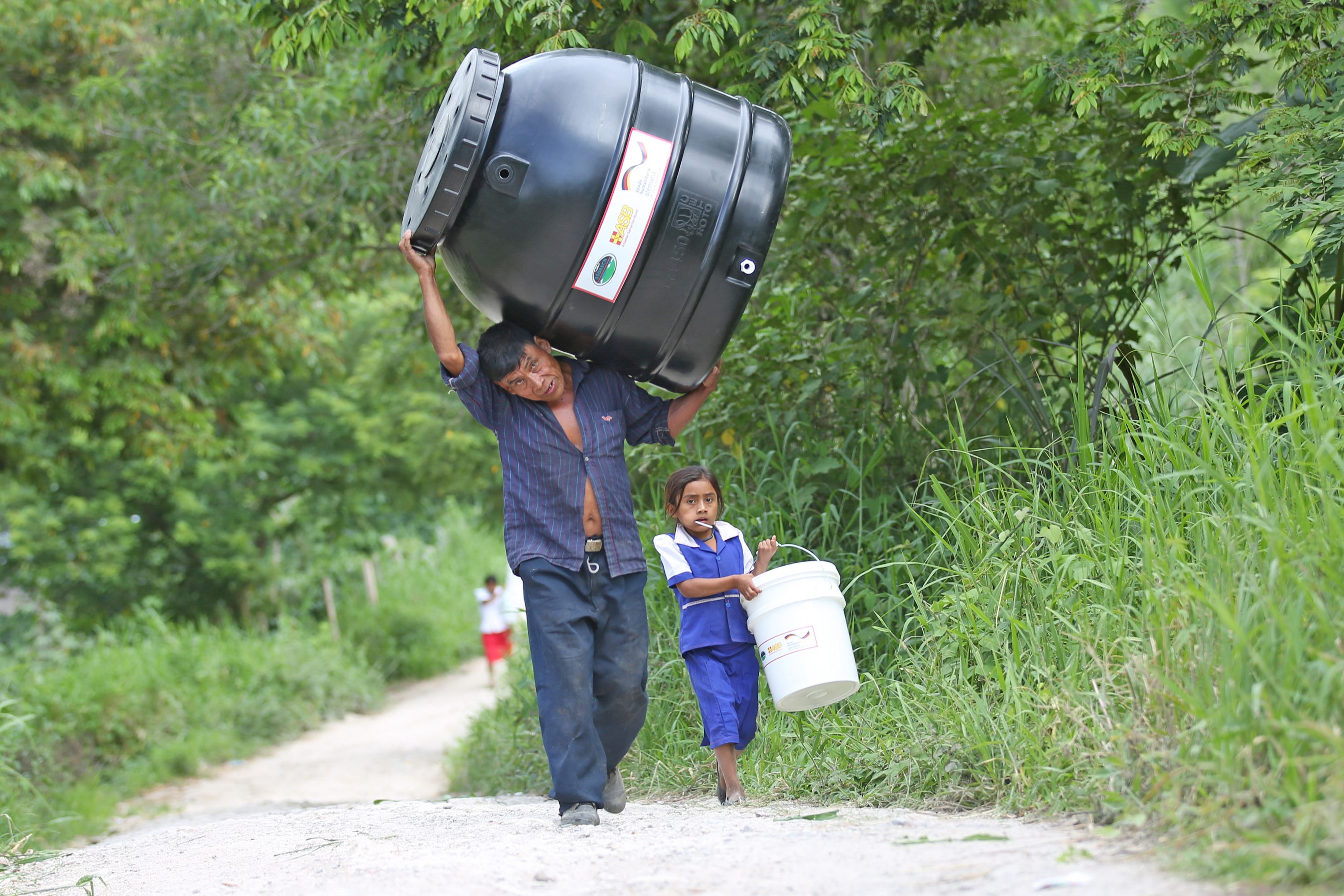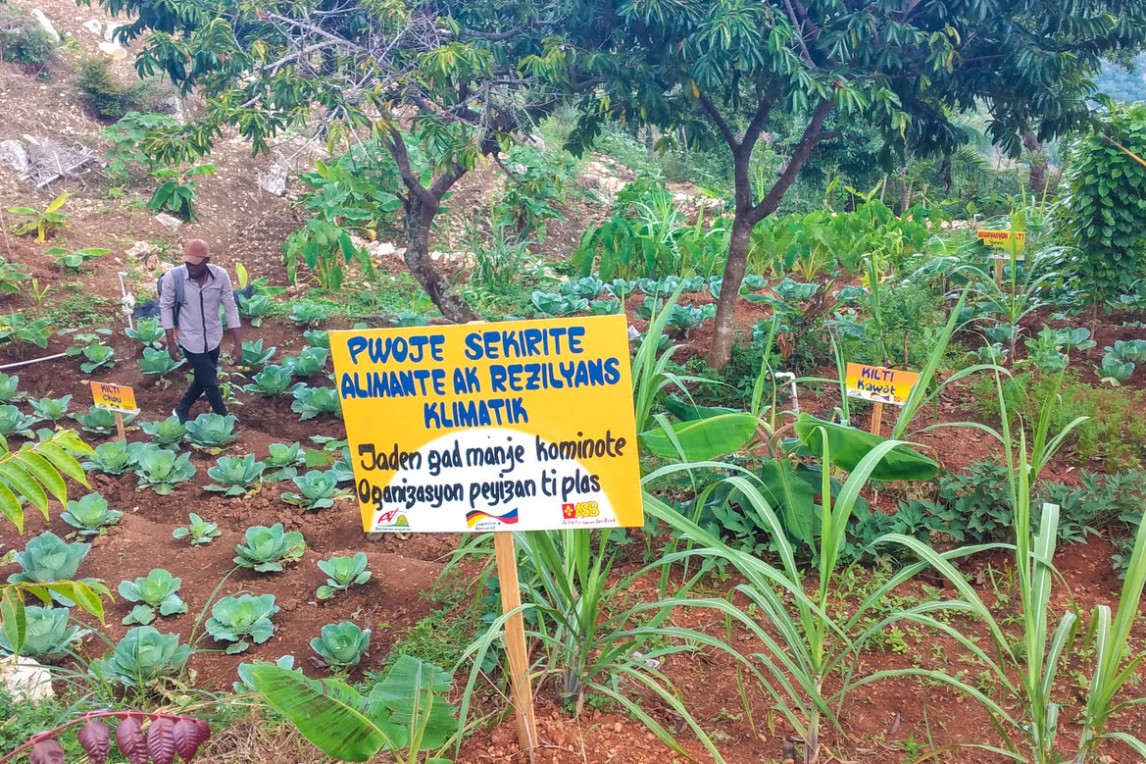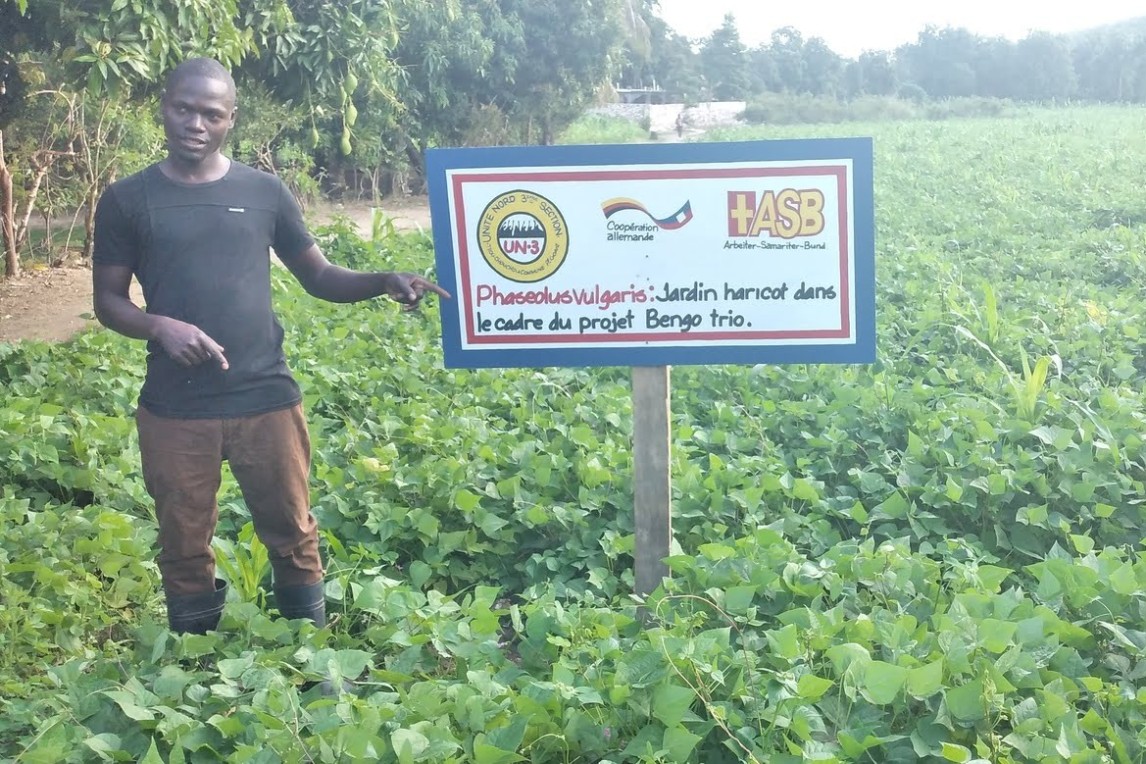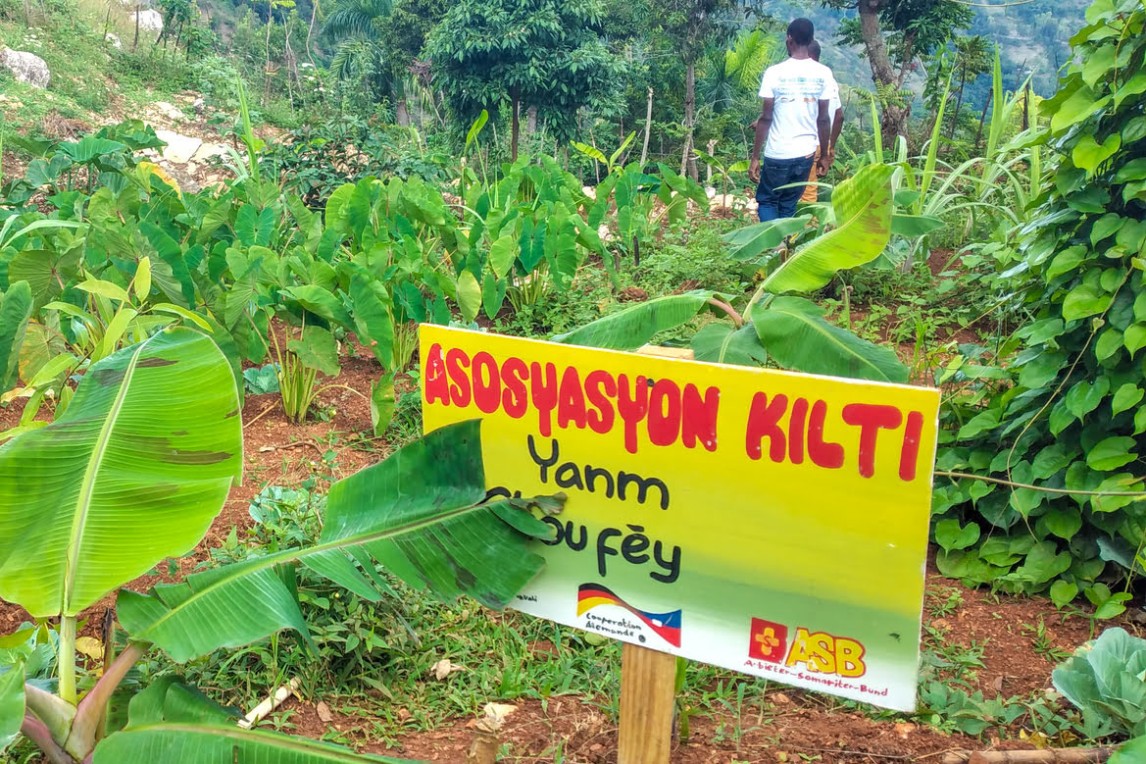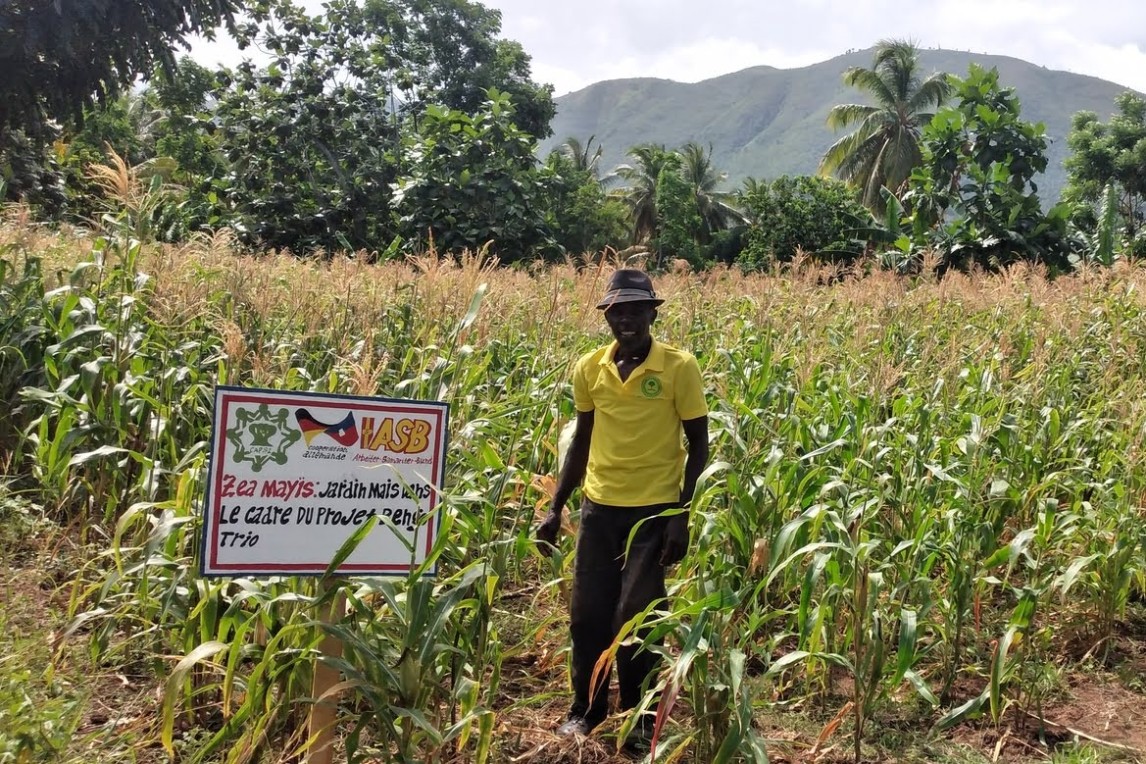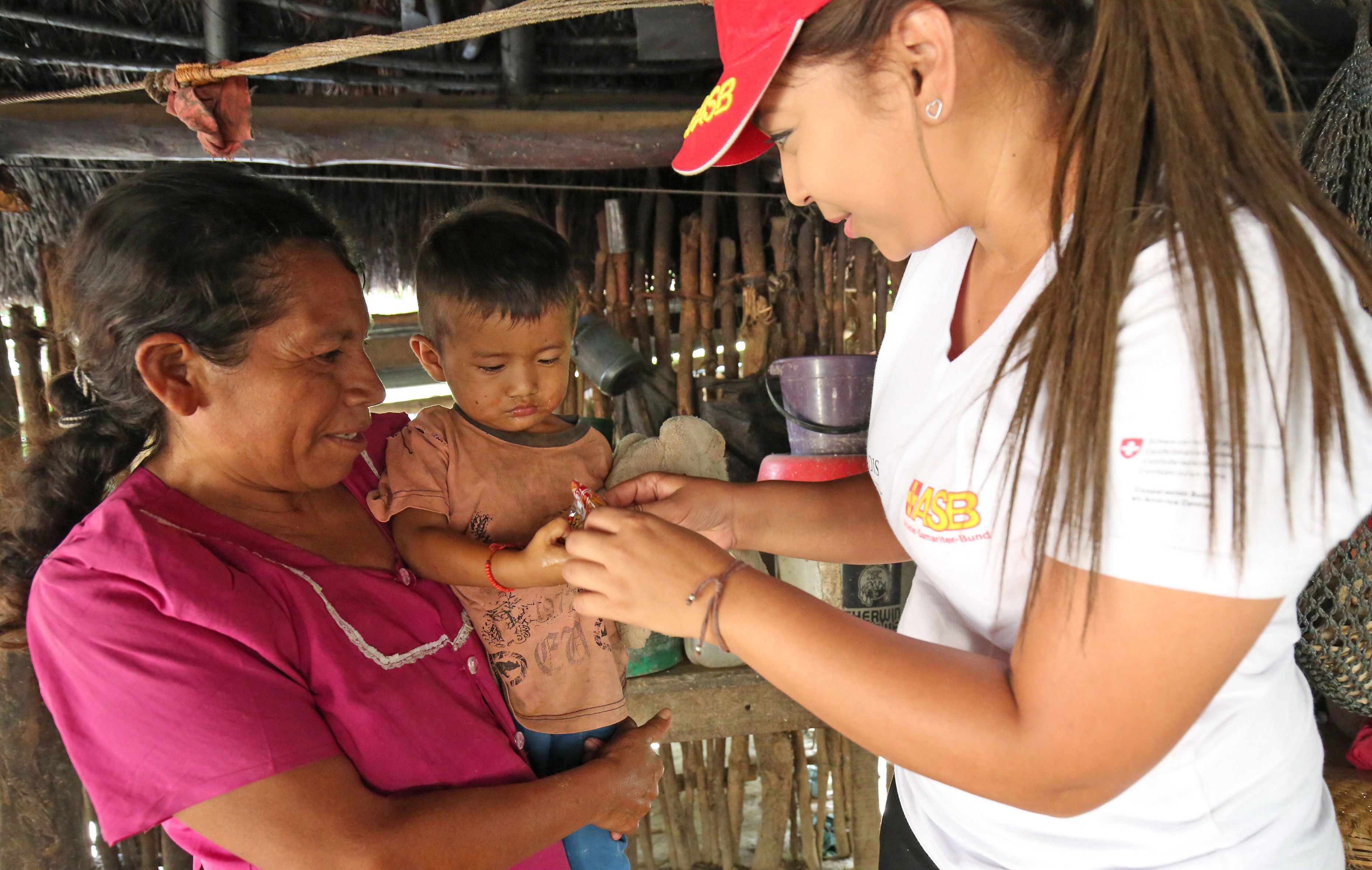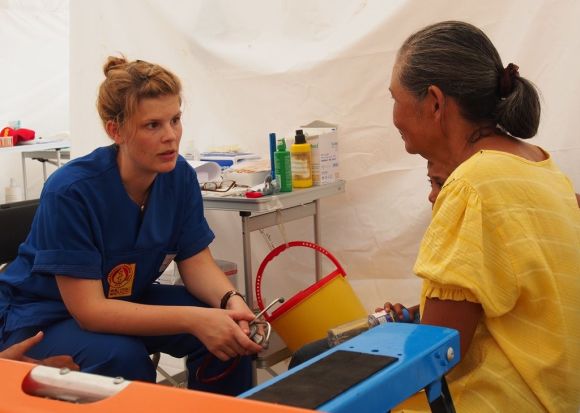-

Project title: Food security and resilience through adapted and diversified production of healthy food in school and community gardens and disaster risk management
-

Project country: Haiti
-

Financing: Federal Ministry for Economic Development and Cooperation (BMZ) and ASB’s own resources. The partner organisation is the Association des Paysans de Vallue (farmers’ association in Vallue, APV).
-

Project volume: € 833,333.00
-

Project duration: 01/02/2022 to 31/10/2024
-

Target group: 8,440 people (vulnerable smallholder families) from rural communities in Haiti (Petit-Goâve and Grand-Goâve)
